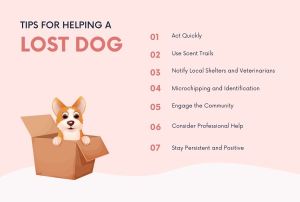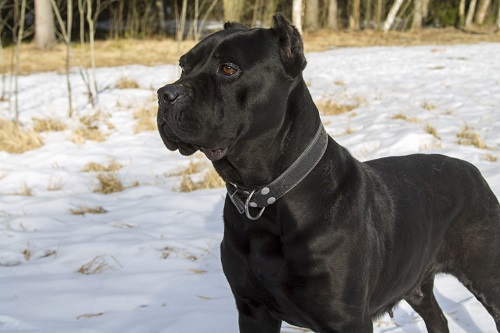Dogs have long held a special place in our hearts as loyal companions and furry confidants. Yet, beyond their companionship, dogs possess a set of extraordinary abilities that continue to captivate our imagination.
Among these remarkable qualities is their ability to find their way home, even when lost in unfamiliar territory.
In this article, we’ll delve into the remarkable factors that enable them to navigate with precision, showcasing their extraordinary sense of smell, the role of memory and spatial awareness. We also see the scientific insights that underpin their uncanny talents.
Let’s jump in the details.
The Remarkable Sense of Smell
Dogs are well-known for their extraordinary sense of smell. They have a sensory ability that far surpasses our own. To put it into perspective, humans have approximately 5 million scent receptors in their noses, while dogs boast a staggering 300 million.
This exceptional olfactory power allows dogs to perceive and distinguish an astonishing array of scents, often imperceptible to us.
Their keen sense of smell is a crucial tool for survival. It helps them detect prey, predators, and, in our context, their way back home. Dogs can identify specific scents, follow scent trails, and even discern minute variations in odors.
When a dog ventures into unfamiliar territory or becomes separated from its owners, it will often rely on its remarkable sense of smell to navigate. They imprint scents of familiar places, including their homes and owners, deep in their memory.
But it’s not just the quantity of scent receptors that sets dogs apart; it’s their ability to process this information and make sense of it. The olfactory center in a dog’s brain is significantly larger and more developed than in humans, further enhancing their scent-detection abilities.
Canine Memory and Spatial Awareness
Beyond their extraordinary sense of smell, dogs rely on memory and spatial awareness to find their way home. Studies have shown that dogs exhibit impressive memory retention and a deep understanding of their physical surroundings.
Dogs can remember specific routes and landmarks. They try to navigate through areas they’ve previously explored. For example, your daily walks with your dog imprint familiar sights, sounds, and smells in their memory.
This knowledge helps them recognize and follow known routes when they find themselves in an unfamiliar place. Moreover, dogs possess an innate spatial awareness that aids in their navigation.
They can gauge distances, remember the layout of their environment, and make informed decisions on which direction to take. This spatial cognition, often underestimated, plays a significant role in their homing abilities.
When a dog goes missing, this emotional connection fuels their determination to return. These emotions guide them through their memories of familiar routes and landscapes. While the exact mechanisms behind their spatial awareness and memory remain subjects of ongoing research, their effectiveness in finding their way home is undeniable.
These unique qualities, combined with their remarkable sense of smell, collectively contribute to a dog’s ability to navigate with impressive accuracy, even in challenging and unfamiliar conditions.
Lost and Found Stories
The world is filled with heartwarming tales of dogs embarking on remarkable journeys to find their way back home. These stories are a testament to the unbreakable bond between dogs and their owners, as well as their remarkable homing instincts.
One such famous story is that of Hachiko, the loyal Akita dog from Japan. Hachiko’s unwavering loyalty and devotion to his owner touched hearts around the world. He waited for his owner at Shibuya Station in Tokyo for over nine years, even after his owner’s passing. Hachiko’s story became a symbol of faithfulness and love, not just in Japan but globally.
In another remarkable account, Bobbie the Wonder Dog traveled an astounding 2,800 miles to reunite with his family. Bobbie got separated from his owners during a family vacation in Indiana but managed to find his way back to Silverton, Oregon, an incredible journey that took him six months.
These stories, though exceptional, are not isolated incidents. Countless tales of dogs finding their way home, sometimes over great distances and through challenging conditions, demonstrate their ability to navigate and reconnect with their families.
These stories serve as a source of inspiration and highlight the remarkable homing instincts and unyielding determination of dogs. They underline the depth of the emotional bond between dogs and their owners, a bond that transcends distance and adversity.
The Science Behind It
To understand the remarkable abilities of dogs in finding their way home, we turn to science. Research in this field provides valuable insights into the factors influencing a dog’s homing instincts.
A dog’s breed, age, and familiarity with the area play significant roles in their ability to find their way home. Some breeds, such as Bloodhounds and Basset Hounds, are known for their exceptional sense of smell and tracking abilities. Their advanced olfactory senses enhance their chances of successful navigation.
Age can also influence a dog’s homing abilities. Younger, more energetic dogs may be more inclined to explore and venture further in their quest to return home. Their curiosity and vitality may drive them to undertake longer journeys.
Familiarity with the area is another key factor. Dogs are more likely to navigate confidently and swiftly in places they know well. In familiar areas, their memory and spatial awareness are maximized, making the journey back home more efficient.
These scientific insights help us understand the diverse capabilities of dogs when it comes to finding their way home. While each dog’s journey may be unique, the combination of their sensory abilities, breed characteristics, age, and familiarity with the area influences their homing success.
Tips for Helping a Lost Dog
Losing a beloved pet can be a distressing experience for any pet owner. However, understanding what to do when your dog goes missing can significantly increase the chances of a safe and heartwarming reunion.
Here are some essential tips to guide you through this challenging situation:
- Act Quickly: Time is of the essence when searching for a lost dog. Begin your search as soon as you realize your pet is missing. The quicker you start, the higher the likelihood of a swift reunion.
- Use Scent Trails: Dogs rely on their sense of smell, so leave items with your scent near the area where your dog went missing. These familiar scents can help guide your dog back to safety.
- Notify Local Shelters and Veterinarians: Reach out to local animal shelters, veterinary clinics, and animal control agencies. Provide them with a detailed description of your dog and your contact information.
- Microchipping and Identification: Ensure your dog is microchipped and wears proper identification, such as a collar with an ID tag. Microchips contain your contact information and can be scanned by veterinarians and shelters. They are a reliable way to ensure your dog can be identified and returned to you.
- Engage the Community: Utilize social media platforms and local online communities to spread the word about your missing dog. You can take help from the PawMaw community. It is a very well known lost and found dog website. Share clear photos and information about your pet, and ask friends, community members and neighbors to do the same.
- Consider Professional Help: Some cases may benefit from the expertise of professional pet trackers or search and rescue teams. These individuals or organizations can help locate your dog more effectively, especially in challenging terrains or large areas.
- Stay Persistent and Positive: Keep searching and never lose hope. Dogs have an incredible ability to navigate and find their way home, often under challenging circumstances. Maintain a positive outlook and be persistent in your efforts to reunite with your furry friend.
By following these tips, you can increase the probability of reuniting with your lost dog. Dogs often demonstrate remarkable resilience and resourcefulness when faced with unfamiliar environments.
FAQ:
How far can a dog travel to find its way home?
The distance a dog can travel to find its way home can vary significantly depending on factors like breed, age, and the dog’s familiarity with the area. Some dogs have been known to cover astounding distances, while others may not venture far from their last known location.
Do all dog breeds have the same homing abilities?
No, not all dog breeds have the same homing abilities. Some breeds are known for their exceptional sense of smell and tracking skills, making them more likely to find their way home. The extent of these abilities can vary from one breed to another.
What should I do if my dog gets lost?
If your dog goes missing, act swiftly. Start searching in the vicinity, alert local shelters and veterinarians, and also can utilize the PawMaw community to guide your dog back.
Can a dog find its way home if it’s in an unfamiliar place?
Dogs can find their way home in unfamiliar places, but it may be more challenging for them. Familiarity with the area can significantly aid in their navigation. Dogs may take longer to return home in unfamiliar territory.
Conclusion
A dog can find its way home and it is a testament to the extraordinary abilities and unique bond between dogs and their owners.
Their remarkable sense of smell, memory, and an innate understanding of “home” make these reunions possible. Understanding these qualities and taking action when a dog is lost can significantly increase the chances of a heartwarming reunion.
So, the next time your furry friend embarks on an unexpected adventure, rest assured that they may find their way back home, guided by their incredible instincts.
 DogExpress
DogExpress





















 in Chandigarh, India.
in Chandigarh, India. 

